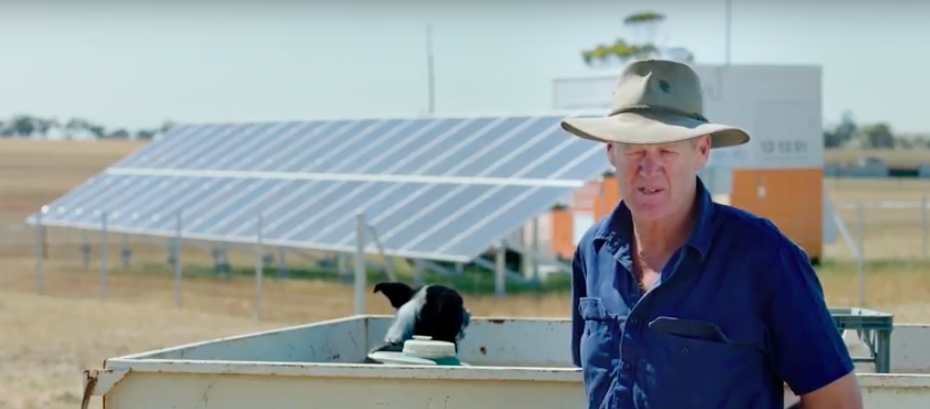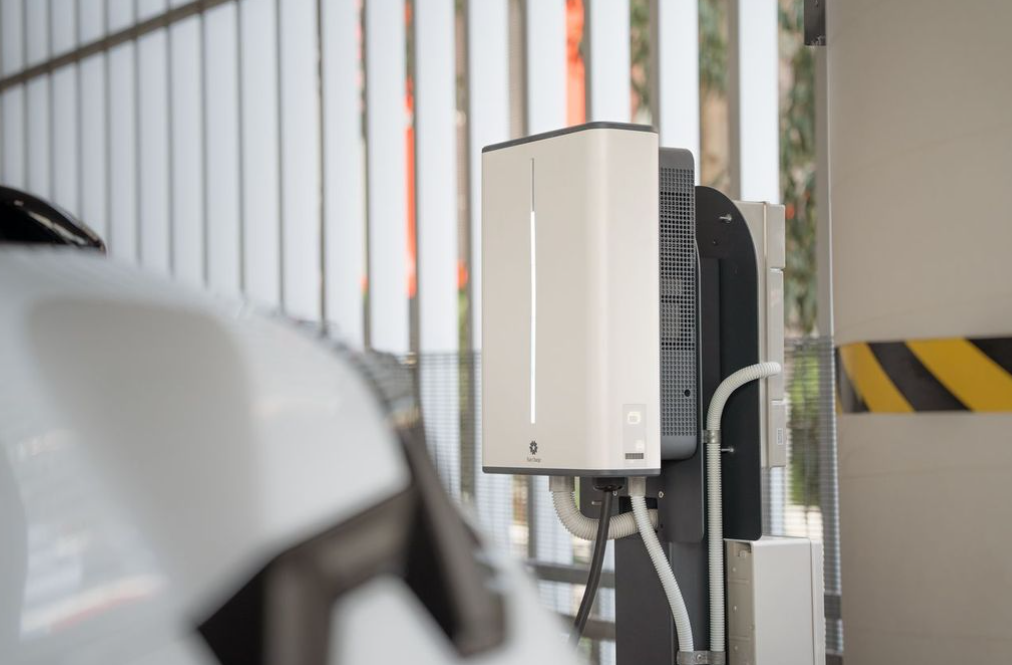Looking for ways to rein in energy costs, Aussie farmers are eager to consider energy efficiency solutions on-farm, with solar power+battery back-up on top of their wish list. Increasing reliability, with many farms connected to the grid through long ‘skinny’ lines, is also a major incentive of going off grid.
According to the latest Agri Insights report from the Commonwealth Bank of Australia, more than three quarters (76%) of farmers interested in investing in energy efficiency solutions would go for solar+storage, followed by 34% interested in solar without a battery.
“In a bid to take back some control and better manage costs, farmers are looking to energy efficiency solutions, and especially to solar power,” says Grant Cairns, Regional and Agribusiness Banking Executive General Manager.
The research showed that nearly half (45%) of all farmers surveyed were already using solar without battery on farm. One in 10 farmers are using solar with battery, and 20% are using gas as their energy supply.
Other solutions farmers are mulling over include: operating in off-peak time (24%), modifying equipment (22%) and wind generators (18%).
In addition to improving energy efficiency in their operations, the bank questioned farmers across the country on their views about energy costs and reliability.
The research found that for 81% of farmers cost is a bigger concern than reliability.
A total of 78% of farmers nationwide say they do not have control over their energy costs, with 61% describing the impact of energy on their bottom line as moderate or significant.
“Four in five Australian farmers have told us that cost is a bigger issue than reliability and more than three-quarters of them say they feel like they don’t have control over energy costs on farm,” Cairns says, noting that energy is a challenge but farmers are looking at ways to address it.
While South Australian farmers are the most likely to say they have some degree of control over costs with nearly a third (28%), the research shows that Western Australia farmers are most keen to invest in energy efficient solutions in the future, with 47% saying they are very or extremely interested.
These concerns coincide with the decision, taken earlier this year, by Western Australia grid operator Western Power to ramp up its program launched in 2016 with a tender for up to 60 stand-alone power systems within the South West Interconnected Network, including solar and battery storage supported with backup diesel generators.
Overall, farmers nationally reported an average of 11.4% of their inputs spend goes to energy. For cotton growers, energy chews up 14.6% of the inputs budget, and 14.1% for dairy producers.
“Energy costs have a significant impact on the bottom line for all businesses, and farms are no exception,” Cairns said. “We’re hearing from farmers that energy costs account for up to nearly 15% of their farm input costs. That’s a major business outlay and something farmers are definitely keen to manage, to the extent that they’re able.”
Among the commodity sectors, cotton is most eager for energy efficient investment, with 53% of growers saying they are very or extremely interested in investing in energy efficiency.
This content is protected by copyright and may not be reused. If you want to cooperate with us and would like to reuse some of our content, please contact: editors@pv-magazine.com.









By submitting this form you agree to pv magazine using your data for the purposes of publishing your comment.
Your personal data will only be disclosed or otherwise transmitted to third parties for the purposes of spam filtering or if this is necessary for technical maintenance of the website. Any other transfer to third parties will not take place unless this is justified on the basis of applicable data protection regulations or if pv magazine is legally obliged to do so.
You may revoke this consent at any time with effect for the future, in which case your personal data will be deleted immediately. Otherwise, your data will be deleted if pv magazine has processed your request or the purpose of data storage is fulfilled.
Further information on data privacy can be found in our Data Protection Policy.